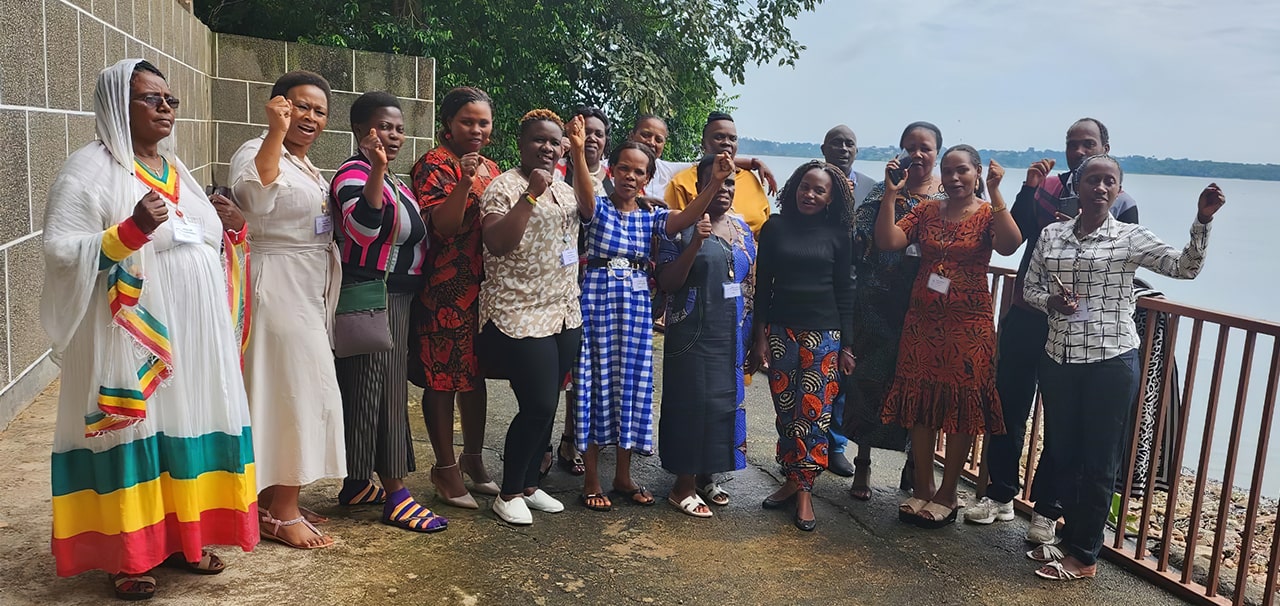The five countries currently represented in HNA, Ethiopia, Kenya, South Africa, Tanzania and Uganda met in December 2021 and February 2022 to agree the vision and goals for building a regional home-based workers’ network. The vision is for home-based workers to have our own registered organisation that addresses all our needs as over-burdened women workers.
- Formalisation of national organisations and HomeNet Africa with constitutions and democratic policies and practices in place.
- Addressing the need for wider market access through collective and improved marketing.
- Improving home-based workers’ lives by addressing their social and economic needs.
- Growing regionally to be fully representative of the continent from east to west and north to south including the diverse nations of Africa. At national level the priority is to recruit all home-based workers to be members of representative HBW organisations.
- Improving the quality of products for better market access and improved livelihoods
HomeNet Africa agreed to nominate two representatives from each of the five countries to serve on a committee that will have the oversight responsibility to monitor the progress on the implementation of the specific activities planned annually to reach the strategic goals. It is called the Strategic Plan Implementation Oversight Committee. The committee has been meeting virtually since its inception; soon after the five-year plan was finalised and the process for its implementation was agreed. The committee held its first physical meeting in Entebbe on the 8th-10th December to;
- Get to know each other better as members of the committee
- Clarify our roles and responsibilities at regional and national level.
- Check our progress as HomeNet Africa on the implementation of Year 1 of the five-year plan.
- Continue our review of the HNI Constitution in preparation for developing the HNA Constitution.
Countries reflected on what we had planned? Our experiences of implementing the plan. What progress we have made and what challenges we encountered along the way. The reflections were thorough and we were honest about the challenges that we encountered. We learned that not all our challenges have easy solutions but through collective action it becomes easier to address them.
Each pair had a turn to facilitate a section of the workshop agenda as part of our own learning and maintaining ownership of our plan. As we learned and reflected together we had fun getting to know each other better.



